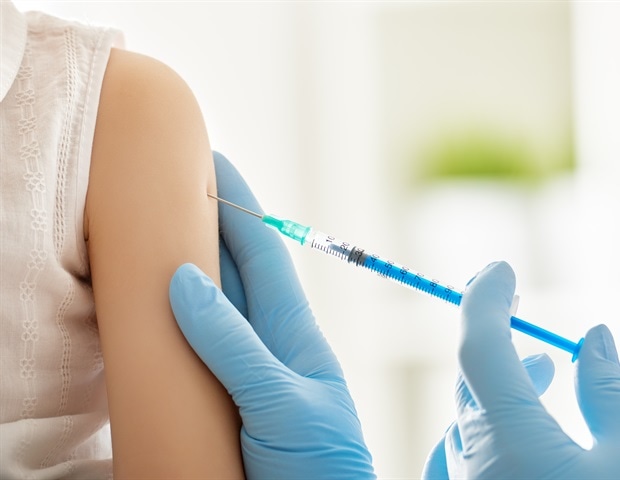The development of a protein vaccine candidate for nasal administration has taken another step. Led by the BioMAP research team, from the Infectiology and Public Health (ISP) joint research unit run by INRAE and the Université de Tours, this project, supported by the Ministry of Higher Education, Research and Innovation, and accompanied by the ANRS | Maladies infectieuses émergentes, is moving up a gear.
As new pre-clinical results obtained with the Delta variant this winter demonstrate the robustness of the concept of this vaccine blocking the contagiousness of SARS-CoV-2, the French start-up LoValTech, labelled Deeptech by BPI France, has been created.
To accelerate the development of the project and consolidate the investment announcements, this new company now holds an exclusive worldwide licence to exploit the patent on the vaccine, granted by the Université de Tours and INRAE. Its objective is to manage the project from the development phases of the vaccine formulation through to clinical trials leading to a market launch at the end of 2023, beginning of 2024. Within an ecosystem of academic, hospital and innovation partners, and subject to compliance with a tight schedule and sufficient external investment, this project can contribute to overcoming the pandemic crisis.
Since June 2020, the BioMAP research team of the INRAE-Université de Tours Infectiology and Public Health (ISP) joint research unit, a member of the Carnot Institute's France Futur Elevage network, has been working on the development of a nasal vaccine against the SARS-CoV-2 virus, with the support of several teams from universities, academia and INRAE.
An original and robust vaccine concept, supported by ANRS | Maladies infectieuses émergentes
Pre-clinical tests had demonstrated the efficacy of the vaccine candidate after two nasal immunizations delivered three weeks apart, both in terms of the immune response and early neutralization of the original virus and its variants, greatly decreasing the risk of contamination by a vaccinated individual. The results of this non-adjuvanted protein vaccine were confirmed at the end of 2021 by new pre-clinical trials on rodents validating its effectiveness against the Delta variant. The vaccine, consisting of the spike protein and non-mutated viral proteins, would therefore protect against the currently circulating strain of SARS-CoV2 despite multiple mutations.
The support of the ANRS | Maladies infectieuses émergentes on this vaccine candidate will allow the consolidation of the design as well as monitoring all the phases to be carried out until market launch.
Decisive next steps: fund-raising, production of vaccine batches and first clinical trials
Founded by Isabelle Dimier-Poisson from the UMR ISP and head of the BioMAP research team at the origin of the project and Patrick Barillot, former development director at Recipharm, the start-up LoValTech (for Loire Valley Technology) has held an exclusive licence to exploit the vaccine candidate since its creation in January 2022, granted jointly by the Université de Tours and INRAE.
Mathieu Epardaud (INRAE researcher) and Nicolas Aubrey (associate professor at the Université de Tours), both members of BioMAP, are also part of the adventure as partners and will be scientific consultants for the startup. The ANR and the Centre-Val-de-Loire region provided an initial funding of €500,000 for scientific development. The Ministry of Higher Education, Research and Innovation allocated a further €1.5 million and the ANRS | Maladies infectieuses émergentes 0.9 million, for a total of €2.4 million, to the Université de Tours in order to carry out the production of the vaccine proteins in a GMP (Good Manufacturing Practice) environment, essential for clinical trials.
From the first quarter of 2022, the challenge will be to produce this biomedicine through the Toulouse-based company GTP Bioways and to launch the production of clinical batches for clinical trials in the second quarter.
At the same time, the specific installation systems – a novel design – of this vaccine in the nose are the subject of collaborative exchanges with two specialized companies, Resyca and Aptar Pharma.
Lastly, discussions on the design of the clinical trials and the drafting of the phase I protocol will be initiated over the next few weeks with the support and expertise of the ANRS | Maladies infectieuses émergentes, sponsor of these future clinical trials. The Clinical Investigation Centre of the CHRU (the Tours Regional University Hospital, a joint structure of the University Hospital, the University and Inserm) has already committed to conducting these clinical trials with other investigators.
Non-invasive and requiring minimal logistics, this vaccination system will allow for a wider distribution:
- to countries with a satisfactory vaccination coverage rate as a booster vaccination in order to strengthen the immune response – particularly the mucosal one – to protect the vaccinated population from symptomatic forms of the disease and, above all, to avoid transmission of the virus.
- to countries where the population is not vaccinated as a first dose.
INRAE
Posted in: Medical Research News | Disease/Infection News
Tags: AIDS, Biomedicine, Contamination, covid-19, Education, Efficacy, Hospital, Immune Response, Immunoglobulin, in vivo, Lungs, Manufacturing, Pandemic, Protein, Public Health, Research, SARS, SARS-CoV-2, Spike Protein, Vaccine, Virus
Source: Read Full Article
